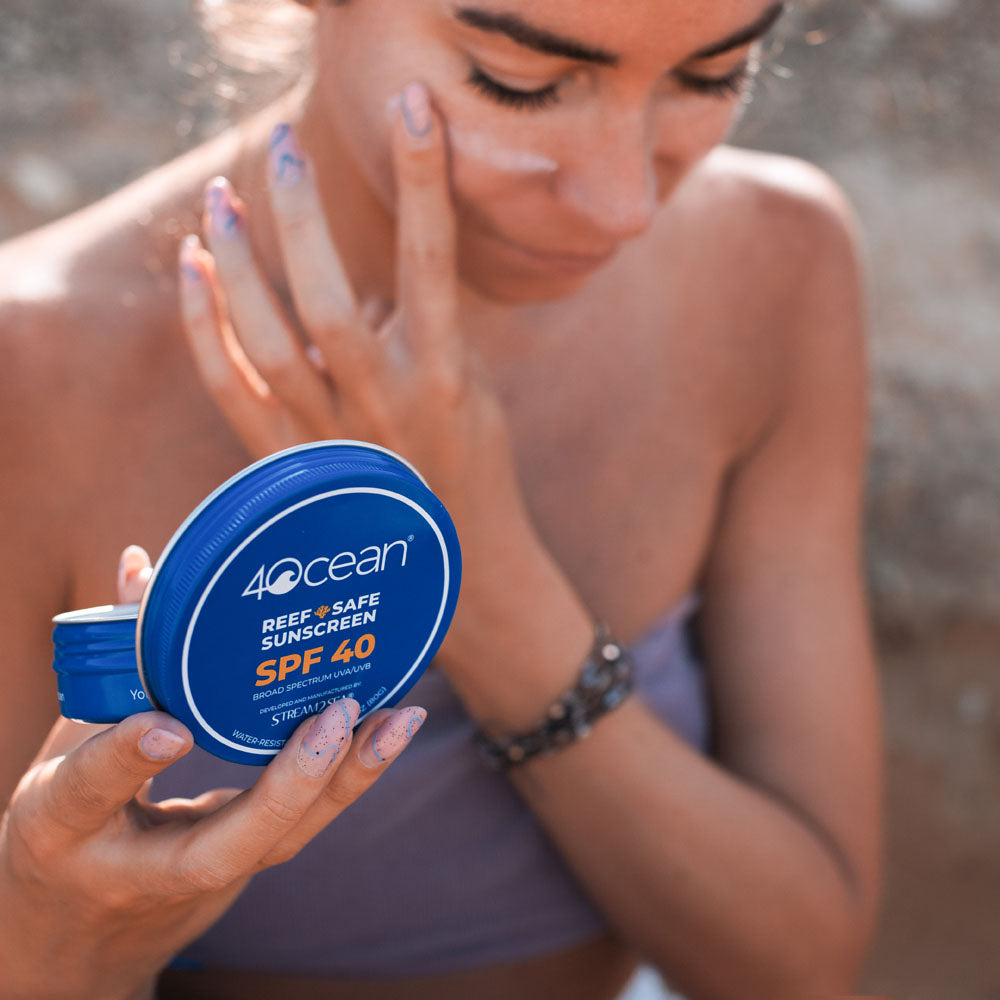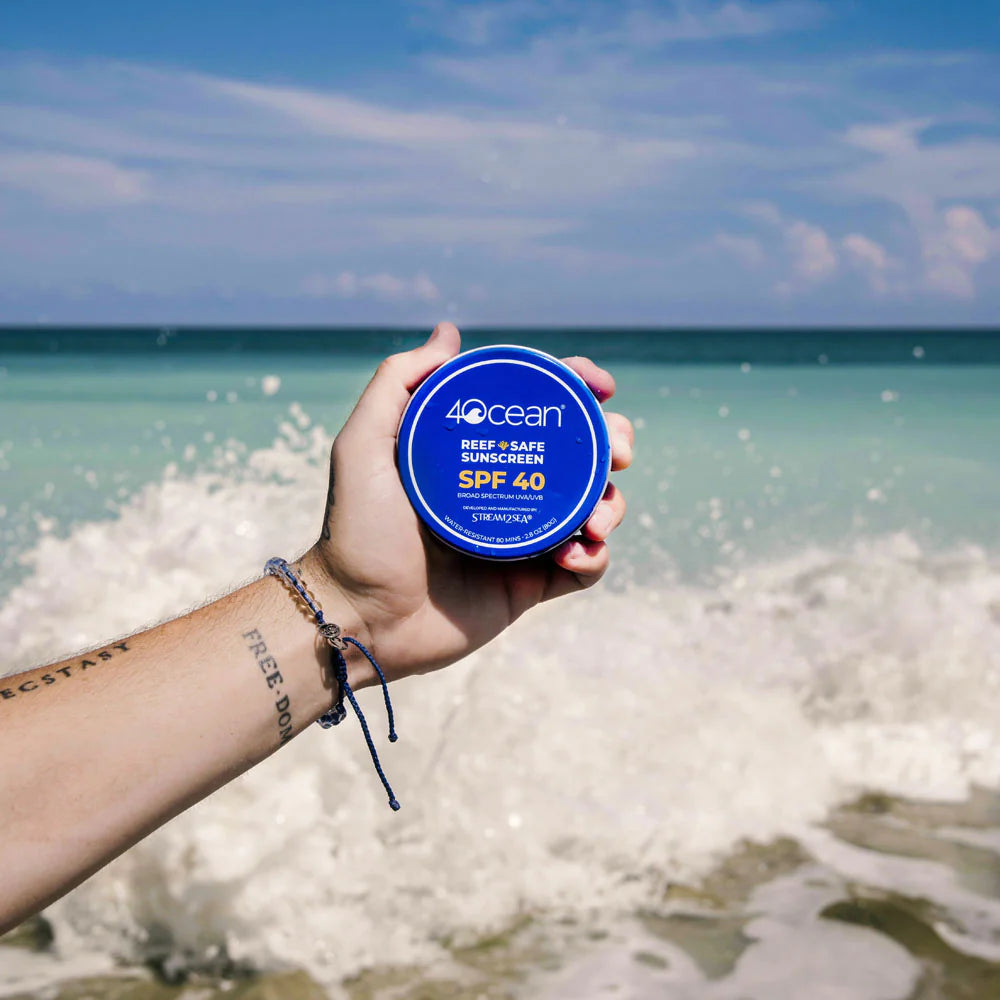5 MIN READ
5-13-2024
Surf’s Up
Sustainably
Mikaela Walsh, 4ocean Research Analyst
Ride the waves while saving the ocean.
Catching waves is one of the ocean's most immersive experiences: complete serenity, a big blue sea, the sun’s rays, and frequent marine life sightings. There’s no wonder why ocean-goers around the world love to surf. Surfers are scientifically some of the happiest people on Earth. Surfing is one of the most beneficial outdoor activities one can participate in for mental and physical well-being. Along with this fantastic connecting activity comes negative environmental consequences from various forms of pollution. This is why we created the perfect guide to surfing sustainability.
SURF WAX
Did you know that up to 90% of the waxes are made from petroleum? Petroleum waxes are made from crude oil derivatives known as hydrocarbon waxes and comprise petroleum, paraffin, and microcrystalline. These bioproducts are toxic and potentially carcinogenic when ingested. These waxes from crude oil are also not biodegradable, build up in the ocean over time, and wash along the coastline. The waxes will slowly come off the board and go straight into the sea to cause pollution.
Along with the petroleum base, many products have started to use synthetic dyes, toxic fragrances, and chemicals to create texture in the waxes. All of these chemical additives are emitted directly into the ocean and can cause harmful effects on marine life.
Buying eco-friendly wax is essential in eliminating the pollution of non-biodegradable products entering the ocean. Surfers can even make their wax from beeswax and coconut oil! This tropical-smelling, environmentally friendly option does not harm the environment and can be a fun activity to get in the wavey mindset.

WETSUITS
We all know that wetsuits are a must as well! But did you know that most of these wetsuits comprise synthetic materials that leak microplastic particles, known as microfibers, into the ocean? These microfibers are 1/100th of the diameter of human hair and have been found ingested in marine organisms in the deepest parts of the sea. They are minuscule and made from plastic fibers similar to a sponge-like material that soaks up pollutants and chemicals in the water, which, when ingested, can cause devastating toxicity. The organism consumes plastic fibers, and chemicals are leached into the materials. These microscopic plastic fibers are shed directly into the ocean.
Consequently, another common issue concerning wetsuits is the material they are made from. Wetsuits are commonly made from a material petroleum-based neoprene, which is a chloroprene rubber material. This material is not biodegradable and can sit in landfills for hundreds of years before breaking down. This material has also been shown to have toxic, carcinogenic effects on both humans and marine animals. When this material is heated, it releases a compound called hydrogen chloride, which has been found to irritate the respiratory tract and integumentary system.
Wetsuits are a must for surfing, especially in colder waters. Researching the materials that make wetsuits is essential in protecting yourself and our environment. Companies that avoid using harmful chemicals are a great way to ensure safety.

SUNSCREEN
Protecting your skin from the sun's rays is extremely important, and the rays are exacerbated because they bounce off the water's surface. Most sunscreens consumers purchase are composed of toxic chemicals that affect humans and marine life. The toxic chemicals rub off the humans and enter the ocean. Through extensive research, these chemicals have been shown to cause extremely harmful effects on coral reefs, fish, and aquatic organisms. An estimated 28 million pounds of sunscreen enter directly into the ocean annually. Two chemicals, in particular, have been known to have highly detrimental effects on these reefs' environments, including oxybenzone and octinoxate, with many additional chemicals still causing harm. Alarmingly, only a minuscule amount of these chemicals has been proven to wreak havoc on marine ecosystems. For example, one study revealed that one drop of the chemicals in a 6 Olympic-sized swimming pool has been shown to affect local coral reef populations massively.
Chemicals in sunscreen have damaging effects on the aquatic environment and have been shown to affect human beings. What you put on your skin is absorbed into your body. Mineral-based and chemical-based sunscreens work in entirely different ways. Mineral-based sunscreen works by minerals sitting on the top of your skin to reflect the harmful sun rays away. On the contrary, chemical-based sunscreen absorbs chemicals into the skin and converts the sun’s rays (radiation energy) into heat energy to avoid sunburn. Many common chemicals used in sunscreen have been shown to have carcinogenic effects, contain endocrine disruptors, and many other unwanted effects. Using reef-safe sunscreen is imperative for the ocean’s health, as well as for your own health.
Using all-natural, mineral-based, environmentally friendly sunscreen is vital. This can help protect your skin and eliminate the amount of chemicals leaking into the ocean. Ensuring your sunscreen is safe for you and our beloved marine life goes a long way.

Surfing is a great activity utilized across the global coastlines, but ensuring that protecting our oceans is the most crucial aspect. Using eco-friendly wax, selecting the proper wetsuit, and reef-safe sunscreen can save the ocean and eliminate the amount of harmful chemicals you are in contact with. Surfing is an excellent physical activity for well-being. Keep surfing- but do it sustainably!

You May Also Like





